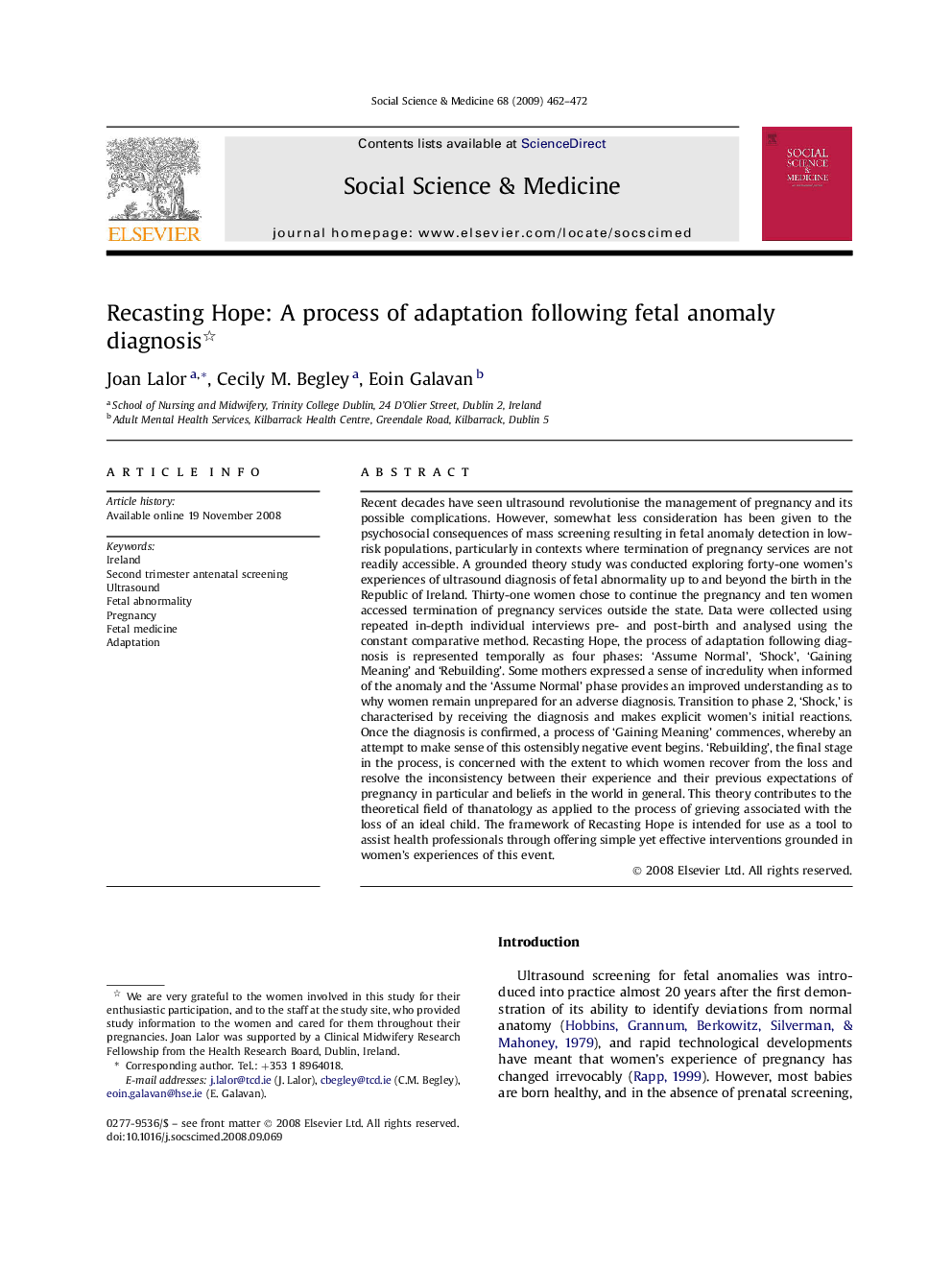| Article ID | Journal | Published Year | Pages | File Type |
|---|---|---|---|---|
| 10472248 | Social Science & Medicine | 2009 | 11 Pages |
Abstract
Recent decades have seen ultrasound revolutionise the management of pregnancy and its possible complications. However, somewhat less consideration has been given to the psychosocial consequences of mass screening resulting in fetal anomaly detection in low-risk populations, particularly in contexts where termination of pregnancy services are not readily accessible. A grounded theory study was conducted exploring forty-one women's experiences of ultrasound diagnosis of fetal abnormality up to and beyond the birth in the Republic of Ireland. Thirty-one women chose to continue the pregnancy and ten women accessed termination of pregnancy services outside the state. Data were collected using repeated in-depth individual interviews pre- and post-birth and analysed using the constant comparative method. Recasting Hope, the process of adaptation following diagnosis is represented temporally as four phases: 'Assume Normal', 'Shock', 'Gaining Meaning' and 'Rebuilding'. Some mothers expressed a sense of incredulity when informed of the anomaly and the 'Assume Normal' phase provides an improved understanding as to why women remain unprepared for an adverse diagnosis. Transition to phase 2, 'Shock,' is characterised by receiving the diagnosis and makes explicit women's initial reactions. Once the diagnosis is confirmed, a process of 'Gaining Meaning' commences, whereby an attempt to make sense of this ostensibly negative event begins. 'Rebuilding', the final stage in the process, is concerned with the extent to which women recover from the loss and resolve the inconsistency between their experience and their previous expectations of pregnancy in particular and beliefs in the world in general. This theory contributes to the theoretical field of thanatology as applied to the process of grieving associated with the loss of an ideal child. The framework of Recasting Hope is intended for use as a tool to assist health professionals through offering simple yet effective interventions grounded in women's experiences of this event.
Related Topics
Health Sciences
Medicine and Dentistry
Public Health and Health Policy
Authors
Joan Lalor, Cecily M. Begley, Eoin Galavan,
